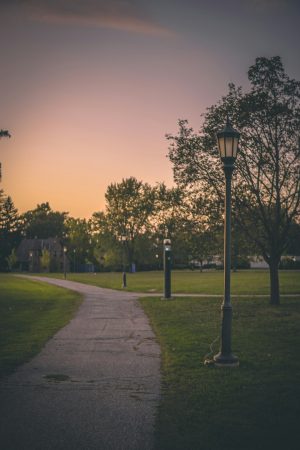In Vermont, law firms and nonprofits collaborate to address pressing legal issues affecting vulnerable communities, such as robocalls and fraud. Nonprofits lack specialized legal expertise but partnerships with telecommunications law firms can provide comprehensive aid, education, and representation. These partnerships optimize resource allocation, expanding nonprofits' reach while law firms contribute their skills for social change, as seen in the successful collaboration between a lawyer for robocall Vermont and anti-fraud organizations.
In Vermont, where vulnerable communities often lack access to legal aid, partnerships between law firms and nonprofits emerge as a powerful solution. This collaborative approach bridges the gap, providing much-needed assistance to victims of modern-day scams, such as robocall fraud. By combining legal expertise with nonprofit dedication, these alliances can create a significant impact.
This article explores how law firms and nonprofits can forge effective collaborations, offering strategies for success and highlighting inspiring case studies from Vermont, with a specific focus on lawyer involvement in combating robocall scams.
Understanding the Need for Collaboration: Uniting Law Firms and Nonprofits to Help Vulnerable Communities in Vermont

In Vermont, the need for collaboration between law firms and nonprofits is more pressing than ever, especially when it comes to assisting vulnerable communities affected by various legal issues. Many nonprofit organizations dedicate their efforts to serving the less fortunate, but often lack the legal expertise required to effectively advocate for their clients. This is where law firms step in as valuable partners. By joining forces, these entities can create a powerful synergy, ensuring that legal aid reaches those who need it most.
For instance, a nonprofit focused on consumer rights and protecting vulnerable individuals from robocalls or fraudulent practices can benefit immensely from the expertise of a local law firm specializing in telecommunications law. Together, they can provide comprehensive support, offering legal counsel, representation, and education to help communities navigate complex legal matters. Such partnerships enable efficient resource allocation, allowing nonprofits to expand their impact while law firms contribute their skills to make a positive social change in Vermont.
Building Effective Partnerships: Strategies for Successful Collaboration Between Legal Professionals and Nonprofit Organizations

Building effective partnerships between law firms and nonprofits is a powerful strategy to enhance legal services for underserved communities, including victims of fraud or abuse. To foster successful collaboration, legal professionals should approach this partnership with a shared vision and mutual respect. Law firms can contribute their expertise in handling complex legal matters, while nonprofits bring extensive knowledge of community needs and access to vulnerable populations.
Effective communication is key; regular meetings, clear goal-setting, and open dialogue ensure both parties understand each other’s roles and expectations. Additionally, law firms can support nonprofits by offering pro bono services, providing legal resources, and sharing their networks. For instance, a lawyer for robocall Vermont could collaborate with a local nonprofit to combat telemarketing fraud, combining legal expertise with the organization’s community outreach capabilities to make a significant impact.
Making a Real Impact: Case Studies of Successful Lawyer-Nonprofit Collaborations to Assist Victims of Robocall Scams

In an era where technology facilitates unprecedented levels of communication, robocalls have emerged as a significant menace, preying on vulnerable individuals across the country. However, collaborations between law firms and nonprofits have proven to be game-changers in combating this issue. These partnerships leverage the combined expertise and resources of both sectors to make a real impact.
For instance, consider a successful collaboration between a Vermont-based law firm specializing in robocall lawsuits and a local nonprofit focused on consumer protection. By joining forces, they were able to offer comprehensive assistance to victims, including legal counsel, financial relief, and educational programs to raise awareness about robocall scams. This holistic approach not only provides immediate support but also fosters long-term resilience against such fraudulent activities.






